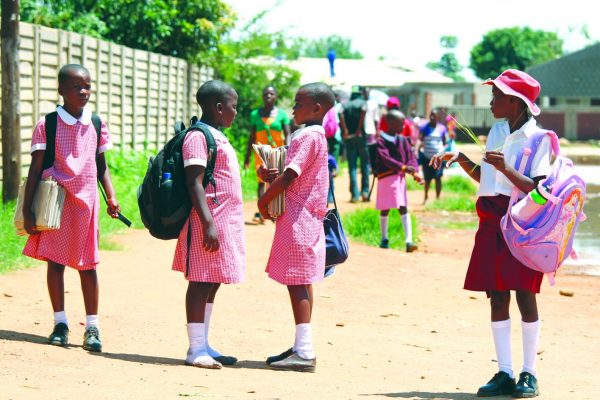
By Tim Middleton
We are all aware of the age-old African proverb that it takes a village to raise a child. It would seem, however, that in today’s world it takes more than the village to raise the child; nowadays it is a pri-village that does it. In the world of pri-village, things are done differently. In this world, only some people can walk on the grass; many people have to move aside when some people walk past; some people are allowed to wear special clothes that others may not; some people can enter certain buildings that others may not; some people are excused duties that all others are required to fulfil; some people are allowed to use certain transport that others are not.
This is how children should be raised, we believe. However, please note, this is not an imaginary world; this is the real world in which we live and in which our children are currently being raised. The world of pri-village is the world of privilege and is the world of our schools. What is more, because it is the world of our schools, where children are educated for life, it becomes the world of our society.
Schools generally give privileges to certain pupils. Seniors or prefects can go in areas that others may not; seniors, prefects and talented pupils may wear different ties, blazers, shirts; seniors may drive their car to school; seniors have their own common room. It is such an issue that the first question pupils ask when they are appointed as prefects (or their equivalent alternative title) is: “What privileges do we get?” It should be noted too that pupils often give themselves other privileges. It seems seniors give themselves the privilege of going to the front of the tuck shop queue and to the back seats of the bus. They excuse themselves from activities that others are not. The reality is that children are all raised to want, expect and even demand privileges. It is seen as a right.
Sadly, young people do not realise that leadership is the greatest privilege anyone could ever possibly be given. No other privilege is required if that one is given. Following on from that, young people must understand that privilege is not a right, nor, in fact, is it necessary, though it will come as a reward. It cannot be taken lightly, nor can it be taken for granted. Above all, it must not be taken selfishly, as a means for personal advantage or benefit. When it is taken in such a way, without responsibility, privilege becomes prejudice, as prejudice is quite simply when some people are treated differently to others.
Privilege can all too easily be abused, as the privileged ones take advantage of their situation and grant themselves further privileges — think of Orwell’s powerful novel Animal Farm with its haunting warning that “some are more equal than others”. If it is learned at school, then it becomes ingrained for life.
Someone has rightly said: “Education is a right; not a privilege.” It is fair to say that in many ways independent education is a privilege that some may have and should be treated as such, not abused. We will do well to reflect for a moment too that parenting is a privilege, not a right or an entitlement, and as such it is not something that we should take lightly or for granted or selfishly. It is rather a responsibility and a privilege. Interestingly, unlike prefects, we do not receive any other privilege for being a parent, as we accept the responsibility to lead our child’s life.
So, do schools really need to give privileges, if they are not helpful? What would schools be like if no privileges were given? Do we simply raise a privileged society which demands further privileges as they take on positions of leadership? Do those who subsequently undertake leadership do so purely for the added privileges they may gain (or, in fact, grant themselves)?
- Chamisa under fire over US$120K donation
- Mavhunga puts DeMbare into Chibuku quarterfinals
- Pension funds bet on Cabora Bassa oilfields
- Councils defy govt fire tender directive
Keep Reading
We have argued in a previous article that the village no longer raises our children, as everyone has moved to the city, while the village has now become the global village (where Kim Kardashian is the aunt, Christiano Ronaldo is the uncle and Donald Trump is the grandfather). Here we have considered that too many of our children are being raised not in the village, but in pri-village. Privilege is a dangerous place; it raises children’s expectations inappropriately and unhelpfully. Our children should perhaps leave the village and pri-village and head to the city of Adversity (as considered in a previous article as well). It is not “Pride and Prejudice” we should be studying at school; it is pride and privilege we should be scrapping from school.
Tim Middleton is the executive director of the Association of Trust Schools [ATS]. The views expressed in this article, however, are solely those of the author in his private capacity and do not necessarily represent the views of the ATS.
email: [email protected]
website: www.atschiszUndam,











